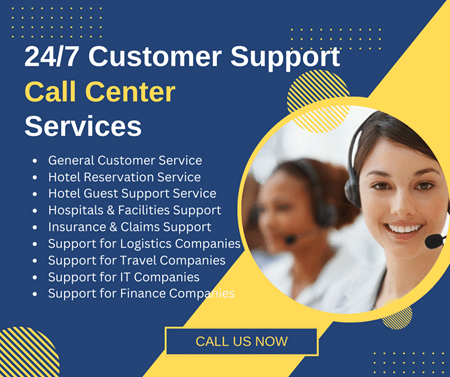The demand for managed services is growing as more and more organizations have opted for digital transformation. New digital enterprise solutions like cloud, automation, big data, blockchain, and IoT have changed the procedure of business operations. This trend has also made MSPs an unavoidable part of business growth. So it is normal to explore managed IT service provider best practices to ensure overall industrial development.
Managed services are the easiest and most cost-effective method for businesses to execute and operate new technologies. For these reasons, the global managed services market has experienced significant revenue growth over the last three years. The market is estimated to grow at a CAGR of 12.7 percent from 2021 to 2028.
This trend of market growth is inspiring news for MSPs. But it also involves many hindrances for MSPs to survive in the competition. The growing demand for managed services also indicates that enterprises desire better services from MSP solutions.
So managed service providers need to upgrade their solutions to remain competitive and appropriate in an evolving business scenario. This post is about managed service providers’ best practices that can help them provide desired service to the clients while making a profit.
Issues Faced by MSPs:
The primary issues that make MSPs struggle are:
- Cybersecurity threats
- Challenges from customers and competitors
- Client acquisition and retention
- Talent acquisition
- Handling internal processes
- Maximizing revenue and profits
7 Managed Service Provider Best Practices
MSPs manage huge workloads across their customer base. So they must own the right tools, processes, applications, and teams to provide the best-in-class managed services. Besides, they need to be the best at time management to deliver the right value at the right time to the customers.
Here are seven best practices for successful MSPs.
1. Utilize MSP Automation Solutions
People consider managed services as a labor-intensive workforce, but it is not the reality. Most mid-sized MSPs work with a minimal number of employees. And even some top-notch service providers run the processes with just a few hundred workers, and they rely on automation.
MSPs have effective and varied types of IT management tools at their disposal. These include remote monitoring and management of MSP help desk software. These tools can efficiently automate daily IT management tasks while maintaining service quality and customer satisfaction. Automation further enhances speed, efficiency, and accuracy.
So your MSP business can remarkably improve through automation. It especially enhances the service quality that the Technical support team delivers. This is the reason Automation is one of the most vital ways for MSPs to succeed.
2. Facilitate New Contracts
MSPs earn revenue mainly from subscription-based customers. It sometimes drives them to promote as many services as possible to a client from the beginning. However, this approach may not help you in the long run to retain your customers.
New customers rarely get ready for an all-inclusive contract. They’ll want to verify your services and credibility before entrusting all of their IT setups with you.
So it is good not to be aggressive and work at the customers’ pace instead. You can even deliberately specify your scope for new customers. Once you succeed in setting up a growth-focused association, you can initiate potential service expansion techniques.
3. Concentrate on a Specific Service
The MSP industry is highly competitive, so many providers attempt to capture as much share as possible. However, if you try to attract customers by offering A to Z all services, you may get lost in the crowd. One of the best methods to stand out in any industrial competition is to focus on a particular service, offering an area of expertise. The top MSPs of the current time provide:
- Cloud computing services
- Cybersecurity and compliance
- Data security and backup services
- Skilled IT assistance
- Digital Marketing
- Web and app development
You can select any one of these services in which you can offer the ultimate technical expertise. Concentrating on a particular service will make you a victor of the profession. Further, specialization will improve your market value.
4. Grow and Establish Uniform Processes
Each customer has different business conditions, and you need to provide the best services to all. If you serve only a few clients, you may offer a unique experience for each of them. However, for a big clientele, it is somehow impractical to offer unique experiences.
So the ideal method is to prepare a predictable, well-structured, and documented delivery strategy. You can make basic customization based on each customer’s need, but your team can work on a uniform work model.
This consistent work model will bring stability to the work culture while reducing errors. So there is no need to provide training to the employees for each new contract. Instead, you can regularly update the workflow process to induce new views and improvement.
5. Hire and Retain Talent
Automation can make your business process simpler and faster, but even the best MSP tool cannot replace skilled talent. So it is crucial to hire and retain qualified IT professionals to expand your business.
It’s more affordable to retain an employee than hire a new one. So, execute employee retention and motivation plan on the existing workforce. Some effective employee retention methods are:
- Skill-based and personalized training
- Engaging in career growth opportunities
- Workplace flexibility
- Hybrid work models
6. Plan a Fair Pricing Model
Setting the right pricing for your MSP is of prime importance. If the price is too high, you can lose potential customers. On the other hand, too low pricing can cause a loss of money. So there must be a balance between price and value.
The best way of cost planning is to evaluate all your direct and indirect expenses. Besides, select practical ways to reduce your service delivery expenses without hindering the quality.
Next, analyze your target audience, competitors, and your brand value. It will help you ideate the market value of your service and how many customers will consider it worthwhile.
7. Choose the Suitable Partners
Right partnership is always crucial to business success. Whether the clients, MSP tools vendors or even white label IT help desk for MSP, analyze every point before deciding on a partnership.
Conclusion:
Managing an MSP company successfully can be tough, but with the suitable tools and planning’s, you can go ahead in the competition. The 7 managed service provider best practices described in this article will help you establish yourself and ensure long-term success.







